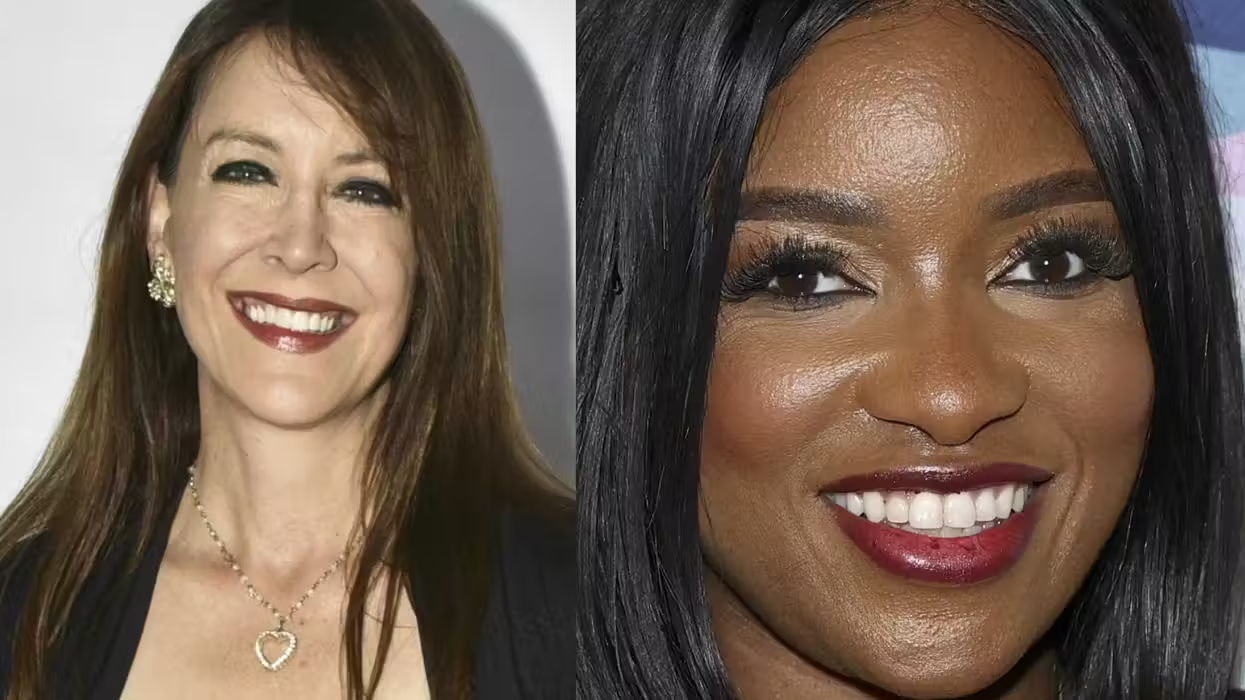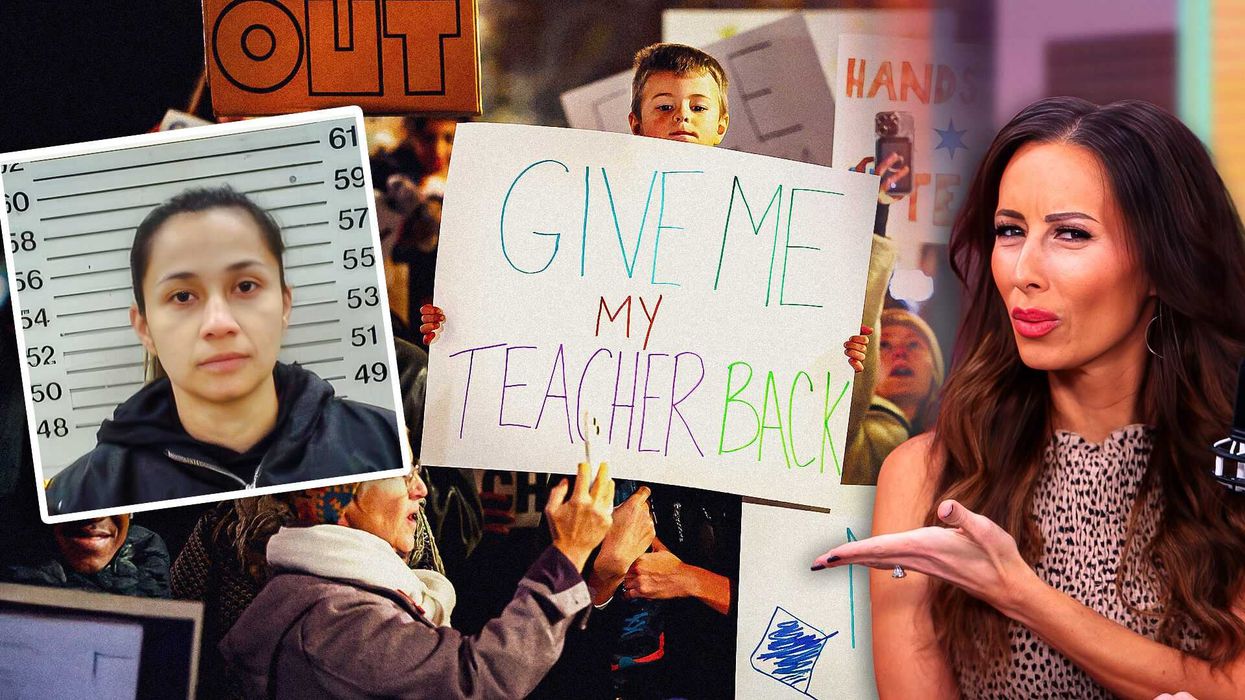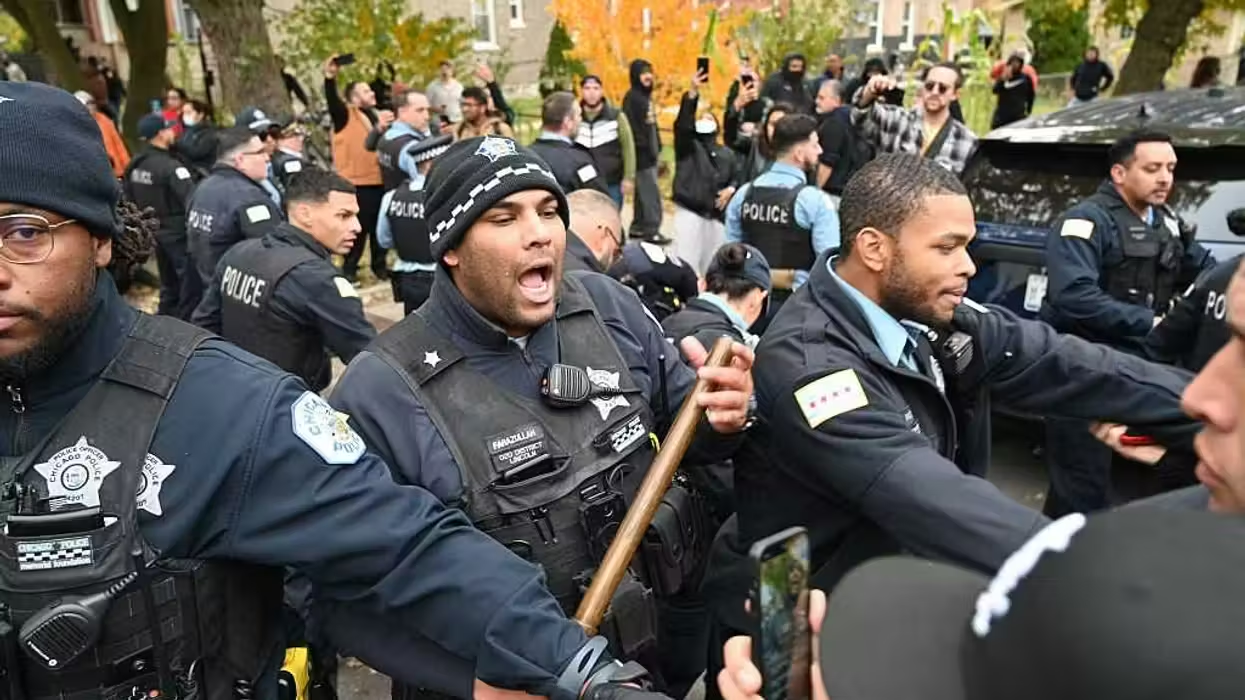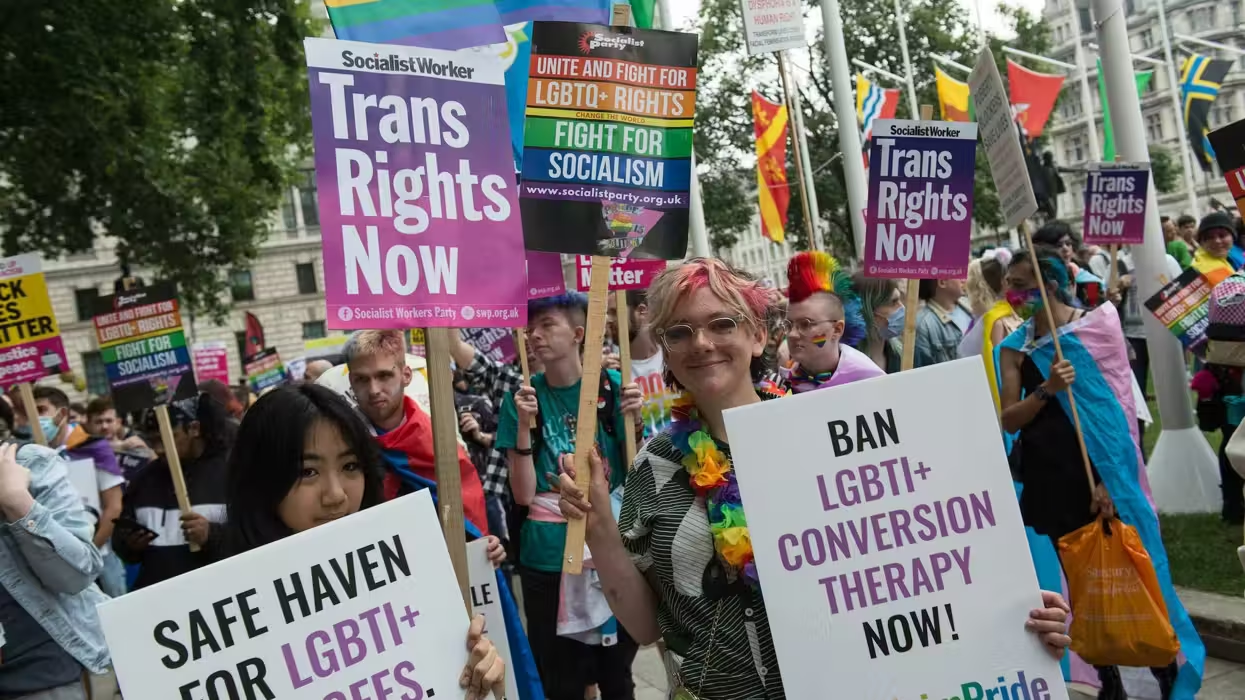While Kaci Hickox, the nurse who recently returned from treating Ebola patients in West Africa, has become the face of opposing state-mandated quarantine procedures for those returning from virus-stricken countries, others in the health care field aren't so opposed to 21-day isolation measures.
"As a physician's assistant who practiced for more than 14 years in clinical medicine, whenever you’re exposed to a contagious disease that you may then potentially pass on to your patients or your community, you look at that as an ethical obligation to 'first do no harm' under the Hippocratic oath," Katherine Harmon, director of health intelligence at the risk management company iJET International, told TheBlaze. "[It's] a tenet that you swear to when you accept your license to practice.
"When you do that, if there’s any question at all that you might make people sick by practices or even being around other people, you understand that it’s your duty and obligation to separate yourself in some way or protect those people from you until you are sure — until you are absolutely sure and until you can get confirmation from someone else, because you might lose that perspective."
 Nurse Nancy Hickox defied Maine's protocol that health care workers who had direct contact with Ebola patients be isolated for 21 days after their last contact. (AP/University of Texas at Arlington)
Nurse Nancy Hickox defied Maine's protocol that health care workers who had direct contact with Ebola patients be isolated for 21 days after their last contact. (AP/University of Texas at Arlington)
Seven states — New York, New Jersey, California, Illinois, Georgia, Florida and Maine — are imposing quarantines of some form on health care workers who have come into direct contact with Ebola patients. The fact that these measures are being implemented should not necessarily come as a surprise to health professionals, Harmon said.
Section 361 of the Public Health Service Act gives the "U.S. Secretary of Health and Human Services [authority] to take measures to prevent the entry and spread of communicable diseases from foreign countries into the United States and between states," according to the Centers for Disease Control and Prevention, which is given the authority to carry out this function. The CDC points out that the state level also has the power to protect the health of the people within its borders.
"To control the spread of disease within their borders, states have laws to enforce the use of isolation and quarantine," the CDC's website states. "These laws can vary from state to state and can be specific or broad. In some states, local health authorities implement state law. In most states, breaking a quarantine order is a criminal misdemeanor."
 Nurse Kaci Hickox, right, and her boyfriend, Ted Wilbur, are followed by a Maine State Trooper as they ride bikes on a trail near their home in Fort Kent, Maine, Thursday, Oct. 30, 2014.( AP/Robert F. Bukaty)
Nurse Kaci Hickox, right, and her boyfriend, Ted Wilbur, are followed by a Maine State Trooper as they ride bikes on a trail near their home in Fort Kent, Maine, Thursday, Oct. 30, 2014.( AP/Robert F. Bukaty)
"It shouldn’t have been a big shock value to her," Harmon said of Hickox's response to being taken into isolation in New Jersey and learning she would also face 21 days of quarantine in Maine, her home state, as well.
"These are governors that are trying to act in best interest of their constituents. Unfortunately, now they’re having to make policy on the fly ... [and] it’s impacting these good people who have gone over in good faith to help and assist," Harmon said.
After days of limbo, a Maine judge on Friday rejected the state's attempt to restrict Hickox's movements while she waits out the rest of the 21-day monitoring period to ensure she doesn't develop symptoms of Ebola. The state had sought to order her confined to her home, which Hickox said was a violation of her rights. Judge Charles C. LaVerdiere said Hickox must continue to monitor herself for symptoms but otherwise said there's no need to force her to remain isolated from others.
Brian Short, a registered nurse and founder of the online community allnurses.com, said the quarantine issue is one of the biggest discussion topics on the forum right now.
"The membership is pretty divided over this issue," he told TheBlaze in an email. "Many agree that quarantine is not necessary when a worker is asymptomatic and therefore not contagious. However, our membership is concerned recent actions by some is shedding a negative light on nurses and health care workers.
"The other portion of the membership feel that, in light of the continuing uncertainty of this virus, we need to err on the side of caution. In order to prevent a potential outbreak here in the U.S. that mirrors what is going on in Africa, health care workers who had direct care with Ebola patients returning from Ebola-stricken areas in Africa should expect to be quarantined," he said.
 President Barack Obama speaks during a White House news conference about the need for the U.S. to keep sending health workers to West Africa to "snuff out" the Ebola virus outbreak at its source, Wednesday, Oct. 29, 2014. (Bloomberg via Getty Images)
President Barack Obama speaks during a White House news conference about the need for the U.S. to keep sending health workers to West Africa to "snuff out" the Ebola virus outbreak at its source, Wednesday, Oct. 29, 2014. (Bloomberg via Getty Images)
Harmon said she thinks the issue some health workers have with the quarantines is how they were communicated.
"The problem often comes with health care folks when you have non-health care people making those decisions for you," she said. "The pushback is when you’ve got other people jumping into the mix who really don’t understand health and [who] health care workers may feel aren't in the business and they can’t interpret test results or understand disease spread.
"They see that as a bit irritating, to say it mildly, which I think is where a lot of the more vocal doctors and nurses who have been contributing their time and risking their lives ... are having problems with some of these measures," Harmon said.
But many health care workers agree with Hickox's stance against the state quarantines if no symptoms are exhibited.
 Nurse Kaci Hickox met with prominent New York civil rights attorney Norman Siegel while in an isolation tent at University Hospital in Newark, N.J., where Hickox was confined after flying into Newark Liberty International Airport following her work in West Africa caring for Ebola patients. (AP/Steven Hyman)
Nurse Kaci Hickox met with prominent New York civil rights attorney Norman Siegel while in an isolation tent at University Hospital in Newark, N.J., where Hickox was confined after flying into Newark Liberty International Airport following her work in West Africa caring for Ebola patients. (AP/Steven Hyman)
"I absolutely disagree with the notion of quarantining health care professionals who've treated Ebola patients. This notion means those returning from Africa but those treating patients in the U.S. as well should be quarantined," Dr. Elaine Ferguson told TheBlaze in an email. "Ebola is a difficult to contract disease. Most don't realize it. And very little attention was given to the fact that no one in Thomas Duncan's family, with direct exposure to him, got the infection."
Let us know what you think of state 21-day quarantines by taking our poll:

 Nurse Nancy Hickox defied Maine's protocol that health care workers who had direct contact with Ebola patients be isolated for 21 days after their last contact. (AP/University of Texas at Arlington)
Nurse Nancy Hickox defied Maine's protocol that health care workers who had direct contact with Ebola patients be isolated for 21 days after their last contact. (AP/University of Texas at Arlington)





